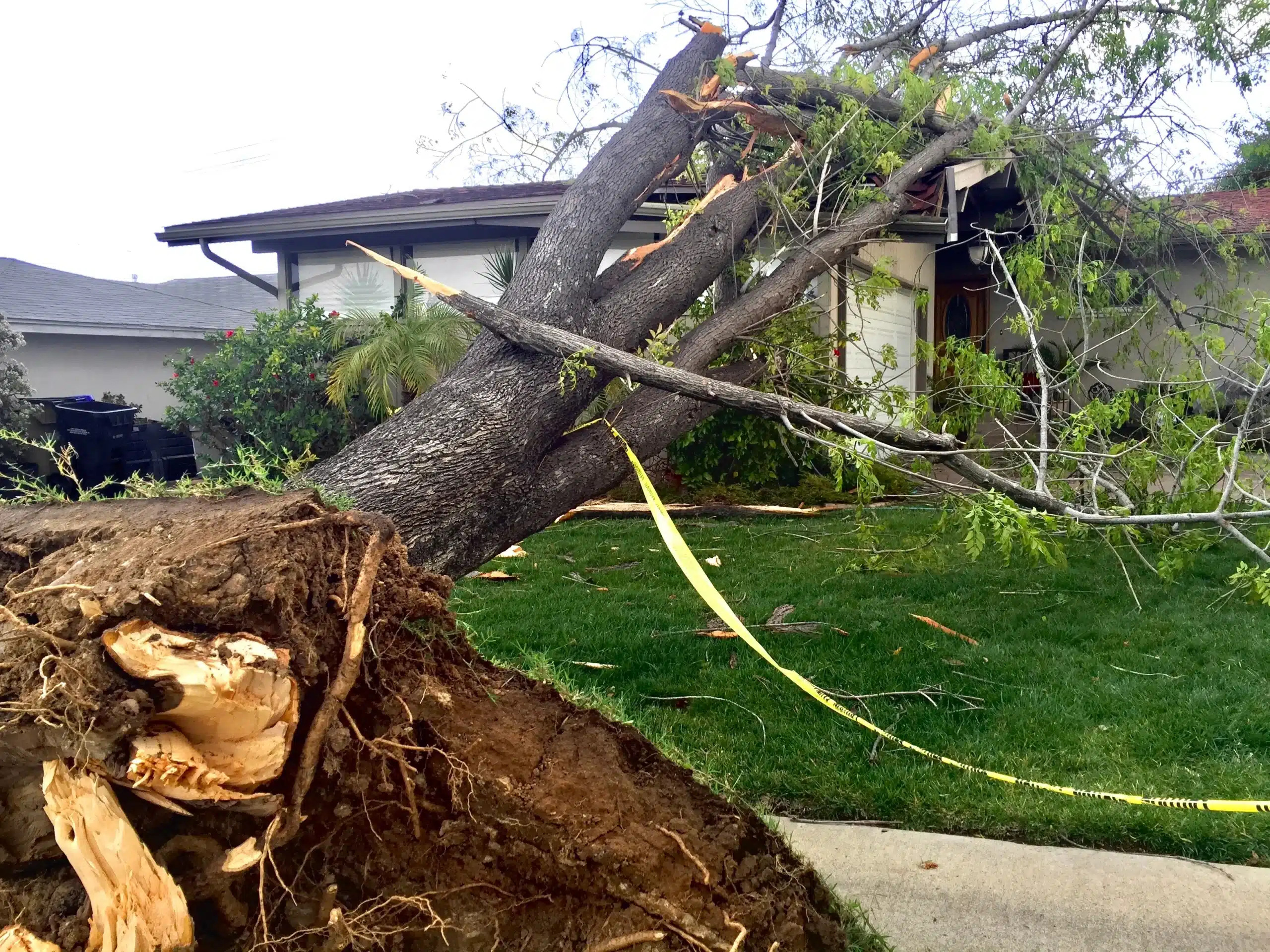
When a neighbor’s tree falls on your house, it can be a stressful and challenging situation to deal with. You may be wondering whose insurance pays for the fallen tree’s removal and your home’s repairs.
The answer depends on a few factors, including the state you live in and whether the tree was maintained properly.
In most cases, the neighbor’s homeowners insurance should cover the costs if their tree falls on your house. But sometimes, you, the victim, may have to file a first-party claim with your insurance about a neighbor’s fallen tree. The Insurance Claim HQ homeowners insurance claim attorneys can assist you if a neighbor’s tree falls on your house.
When Would You Have to File a First-Party Claim About the Neighbor’s Fallen Tree?
If your neighbor’s tree causes damage to your property, you may need to file a first-party claim with your insurance. This is generally the case if:
- The tree was healthy, and there was no sign of disease or decay before it fell onto your house.
- The tree fell due to forces outside your neighbor’s control. For example, if a strong windstorm causes a neighbor’s tree to fall on your property, you would have to file a claim with your own insurer to get reimbursed for your losses.
- Your neighbor has no insurance or is underinsured and is unable to cover the costs of damage.
When Would You Have to File a Third-Party Claim Against the Neighbor’s Insurance?
If the cause of the tree falling was negligence on your neighbor’s part, such as a lack of maintenance, you may be able to file a third-party claim against them. Your neighbor’s insurance would cover the costs rather than your own.
You may be able to file a third-party claim against your neighbor’s insurance if the tree was:
- Diseased or rotting and caused damage to your property.
- Improperly pruned, leading to its fall.
- Neglected in other ways, such as having dead limbs that weren’t removed.
What Do You Need To Do After a Neighbor’s Tree Falls on Your House?
If a neighbor’s tree falls on your house, there are a few steps you should take to ensure that the damages are properly handled:
- Contact your insurance company. First, you should contact your homeowners insurance company and explain the situation. They can tell you if filing a first-party or third-party claim is necessary.
- Document everything. The second step is to document the damage the tree caused, including taking photos and videos. This can help you when filing a claim.
- Contact the neighbor. You should also contact your neighbor and discuss the situation with them. They may be able to help cover some of the damages or provide you with evidence that could help with an insurance claim.
- Hire an insurance claims expert. If it’s still unclear whose insurance company should cover the losses of the tree damage, it is time to contact a property casualty claims expert.
Insurance Claim HQ Can Help!
At Insurance Claim HQ, we are committed to helping residents of Louisiana and other states settle their insurance disputes quickly and fairly. Our self-driven team of claims professionals will go out of their way to protect you against the insurance companies’ bad faith and lowballing practices through candid settlement negotiations. If necessary, we will represent you in court to help you get the compensation you deserve.
Contact us today for a free case evaluation, and let Insurance Claim HQ help you get the most out of your insurance claim!
FAQs About Tree Damage
A first-party claim is when you file a claim with your own insurance company if something happens to your property. A third-party claim is when you file a claim with someone else’s insurance company if their negligence or actions led to the damage.
If the fallen tree did not cause any property damage, it is unlikely that your homeowners insurance will cover debris removal costs. However, if the tree blocks a driveway, the insurance may help cover its removal costs.
